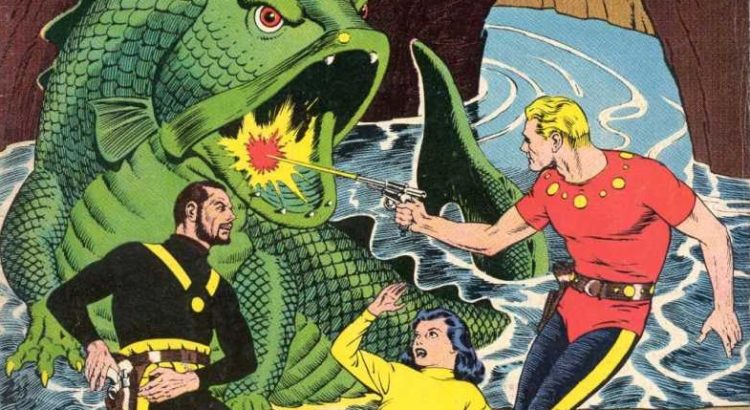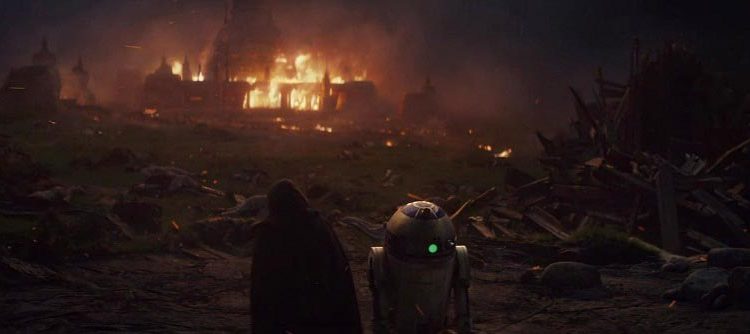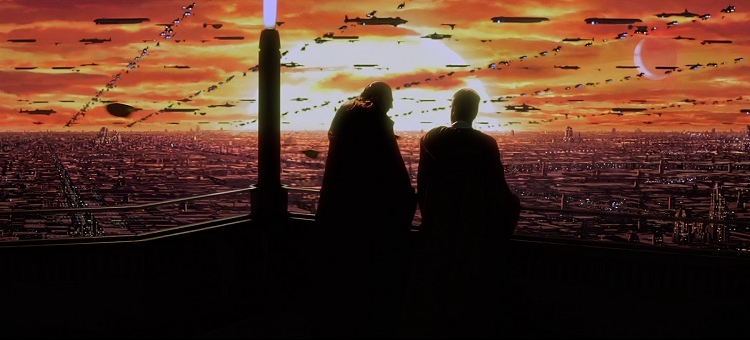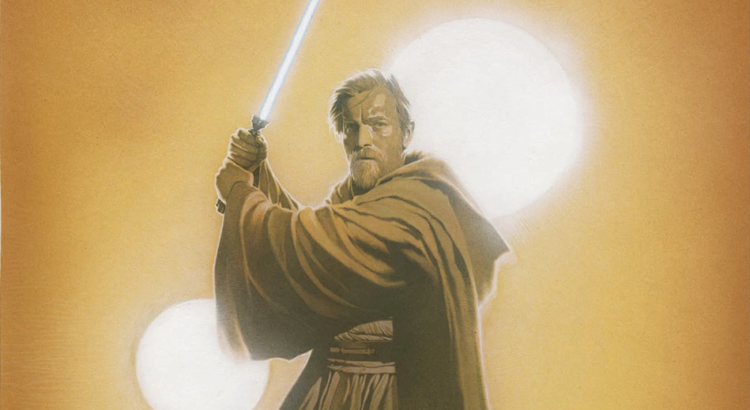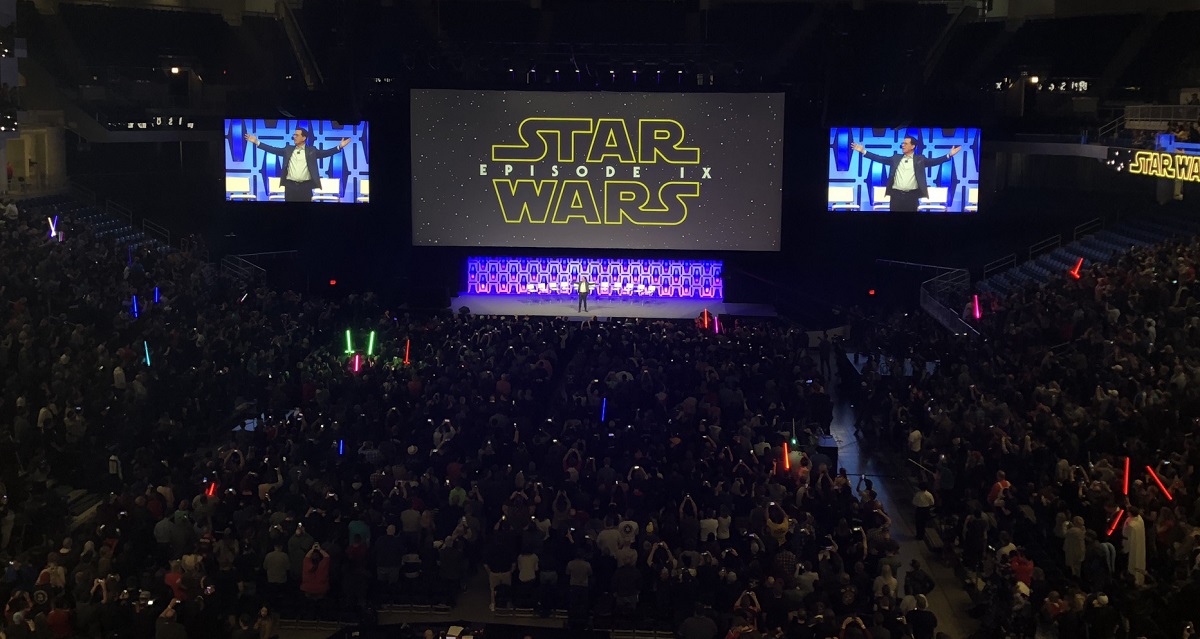Early on in The Rise of Skywalker, Rey does something I’ve wanted to see in a Star Wars film for ages. For at least the seventh time in nine episodes, our heroes are confronted not by a villain, but by a wild animal. We’re not privy to its exact emotional state, but context suggests it’s protecting its territory, or traumatized, or just plain hungry. It’s also, to one degree or another, scary-looking: this isn’t just an animal, we’re expected to understand, it’s a monster.
And in six of the nine episodes, the heroes fight the monster, either killing it or distracting it or driving it off. This type of scene is just one of those things Star Wars does—like Threepio telling you the odds or someone having a bad feeling about this, a monster fight is how the screenplay lets you know this is a Star Wars movie. Old adventure serials loved that shit: the dianoga and the wampa and the rancor were George Lucas emulating the spirit of a guy in a lizard costume wrestling with Flash Gordon, and while few would call those scenes the films’ best material, they’ve never demanded any deeper consideration than that. [1]Not that that stops us.
But then, in this episode, the hero has a different idea. She passes her already-ignited lightsaber to Finn, walks slowly to the big snake-worm-thing, and uses the Force to heal a wound in its side. Not just the Force, but the Force of her own life—instead of killing an injured creature, the quick and easy path, she gives a little of herself to it, and in so doing saves all involved.
This is who Rey is, who she’s always been. To my mind it’s why she can get angry in a fight, more visibly angry than Luke ever got, and never let it consume her. Empathy isn’t something she has to stop and center herself to achieve, or have rubbed in her face by her father’s robot arm, it’s her baseline. Like so much in Rise, I go back and forth on whether the filmmakers intended this reading or just stumbled onto it while setting up some things that happen later in the movie, but hell if it doesn’t work. And what made it especially satisfying for me personally was its timely, if coincidental, refutation of Jedi: Fallen Order.
Read More
| ↑1 | Not that that stops us. |
|---|
